Best Ways to Identify RO Membrane Fouling or Scaling at an Early Stage| Insights by AQUALITEK
RO membrane fouling and scaling are two of the most common causes of performance loss in reverse osmosis systems. Catching the problem early can prevent permanent damage and expensive replacements. This article explains the best indicators and evaluation methods to determine if your RO membrane has started to foul or scale.
- How Can One Initially Determine if an RO Membrane Has Become Fouled or Scaled?
- 1. Increase in Differential Pressure (ΔP)
- 2. Decline in Permeate Flow Rate
- 3. Increase in Normalized Salt Passage
- 4. Appearance of Rapid Pressure Fluctuation or Pump Noise
- 5. Visual Evidence During Autopsy or Inspection (if available)
- 6. Trend Analysis: The Most Accurate Method
- How to Confirm Fouling Type
- Best Preventive Measures
- Conclusion
How Can One Initially Determine if an RO Membrane Has Become Fouled or Scaled?
In an industrial RO system, membrane fouling or scaling rarely happens overnight. Instead, performance gradually declines — often unnoticed until production drops or water quality worsens.
The key is recognizing early warning signs through operational data, differential pressure trends, and water quality changes. Below are the best methods used by professionals to identify membrane fouling or scaling early.
1. Increase in Differential Pressure (ΔP)
One of the first and most reliable indicators is an increase in pressure drop across the membrane stages.
What it means:
•Fouling or scaling creates resistance to flow
•The pump must work harder to push water through
•Scale buildup narrows flow channels
Warning sign:
•ΔP increase of 15–20% or more compared to the baseline
•Uneven pressure differences between stages
Most common causes:
•Calcium carbonate scale
•Biofouling
•Suspended solids buildup
2. Decline in Permeate Flow Rate
A fouled or scaled membrane cannot pass water efficiently.
What to look for:
•Stable feed pressure but decreasing permeate flow
•Requires higher pressure to maintain the same output
Typical early indicator:
•10–15% drop in normalized flow rate
This is often caused by:
•Inorganic scaling
•Organic fouling
•Microbial biofilm
3. Increase in Normalized Salt Passage
Salt rejection decreases as membrane surfaces are blocked or damaged.
Symptoms:
•Rising permeate conductivity
•Higher sodium, chloride, or TDS levels
Key signal:
•5–10% drop in salt rejection efficiency
This may indicate:
•Scaling crystals forming on the membrane surface
•Biofouling compromising the membrane layer
4. Appearance of Rapid Pressure Fluctuation or Pump Noise
When fouling restricts flow, high-pressure pumps often behave abnormally.
Possible signs:
•Vibration
•Abnormal sound
•Pressure instability
This can indicate clogged channels inside the membrane element.
5. Visual Evidence During Autopsy or Inspection (if available)
If the membrane is removed or inspected:
Typical appearances:
|
Type |
Visual signs |
|
Scaling |
White/gray crystalline crust |
|
Biofouling |
Slime or dark layers |
|
Iron fouling |
Reddish/brown stains |
|
Organic fouling |
Sticky yellow/brown film |
Even minor deposits are signals for cleaning or pretreatment review.
6. Trend Analysis: The Most Accurate Method
Comparing real-time data to original system baseline is the best professional practice.
Track:
•Normalized flow
•Salt rejection
•Differential pressure
•Recovery rate
A slow trend in worsening values almost always means fouling is underway.
How to Confirm Fouling Type
Once symptoms appear, take the following steps:
1.Test feed water for:
•Hardness
•Iron
•SDI
•Turbidity
•Bacteria count
2.Review antiscalant dosage and injection condition
3.Analyze cleaning response (acid vs alkaline CIP)
| If acid cleaning works → | Scaling (inorganic) |
| If alkaline cleaning works → | Organic / biofouling |
Best Preventive Measures
To reduce fouling risk:
✅ Ensure SDI < 3
✅ Control recovery rate
✅ Maintain proper antiscalant dosing
✅ Keep feed turbidity below 1 NTU
✅ Perform preventive CIP cleaning
✅ Monitor ΔP weekly
Conclusion
The earliest and most accurate ways to detect fouling or scaling are:
•Rising differential pressure
•Reduced permeate flow
•Increased salt passage
•Unstable pressure readings
By monitoring these indicators regularly, operators can take action before irreversible membrane damage occurs, significantly extending membrane lifespan and improving system efficiency.




Request More Information or Expert Advice
Share a few details, and we’ll provide deeper insights, tailored suggestions, or product support.

Our 500 LPH Reverse Osmosis (RO) System is engineered to provide high-quality purified water for commercial applications. Designed with advanced RO technology, durable components, and a user-friendly interface, this system ensures consistent performance, low maintenance, and long-term reliability.
With its compact design and robust skid-mounted frame, it’s an excellent choice for businesses that demand efficiency and quality in water purification.

Cartridge filter housing is a critical component in liquid filtration systems, designed to securely hold and protect filter cartridges while allowing liquids to flow through the filter media. These housings are essential for industries that require reliable filtration solutions to remove contaminants from liquids, such as water treatment, pharmaceuticals, food and beverage processing, chemicals, and industrial applications.
Cartridge filter housings are typically constructed from durable materials like stainless steel, polypropylene, or fiber glass, providing excellent resistance to corrosion and ensuring long-term performance. They are available in a variety of configurations, including single or multi-cartridge designs, to accommodate different flow rates and filtration needs. These housings are engineered to securely seal the filter cartridges, preventing any bypass of unfiltered liquid, ensuring the integrity of the filtration process.
Designed for easy maintenance, cartridge filter housings offer the flexibility to replace or clean filter cartridges quickly, making them a convenient solution for systems requiring regular maintenance. Their efficiency and versatility make them ideal for applications where precise filtration is crucial for improving the quality of liquids, whether for industrial processes, potable water production, or high-purity applications.

Introduction to Manganese Sand Filter
Manganese Sand Filter (MSF) is an efficient water filtration system specifically designed to remove iron, manganese, and hydrogen sulfide from water.
The filter utilizes a special manganese dioxide-coated sand media, which acts as an oxidizing agent to convert dissolved iron and manganese into solid particles, allowing them to be easily trapped and removed during the filtration process.
Manganese Sand Filters are commonly used in residential, commercial, and industrial water treatment applications where high levels of these contaminants are present. By improving water quality, preventing staining, and reducing unpleasant tastes and odors, Manganese Sand Filters provide a reliable and cost-effective solution for maintaining clean, clear, and safe water.

Introduction to Green Sand Filter (GSF)
Green Sand Filter (GSF) is an effective water filtration system designed to remove iron, manganese, and hydrogen sulfide from water. Utilizing a specially treated green sand media, this filter works through the process of oxidation and adsorption, where impurities are trapped within the filter media, ensuring clean, clear water. Green Sand Filters are widely used in both residential and industrial applications where water contains high levels of iron and other minerals that can cause staining, unpleasant odors, and corrosion. By providing an efficient and cost-effective solution for water purification, Green Sand Filters help protect plumbing systems, appliances, and enhance water quality for various applications.
© 2026 AQUALITEK. All rights reserved.

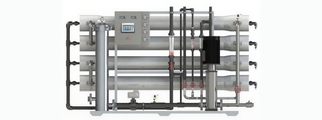
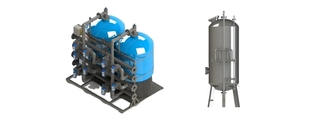
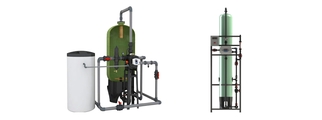
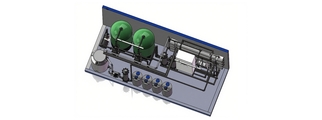
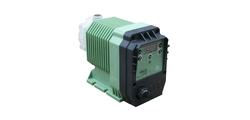
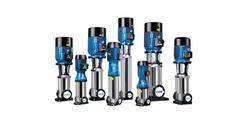
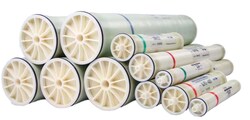
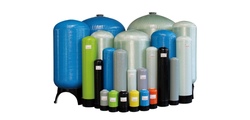
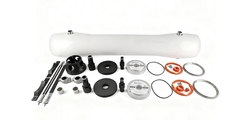
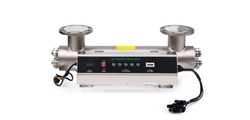
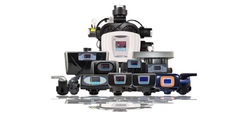
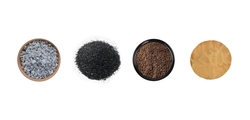
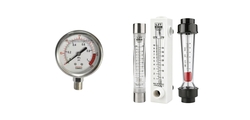
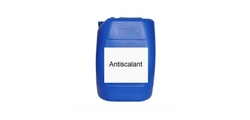
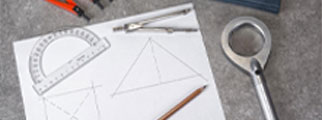



AQUALITEK- Aimee Hoo
AQUALITEK - Aimee Hoo